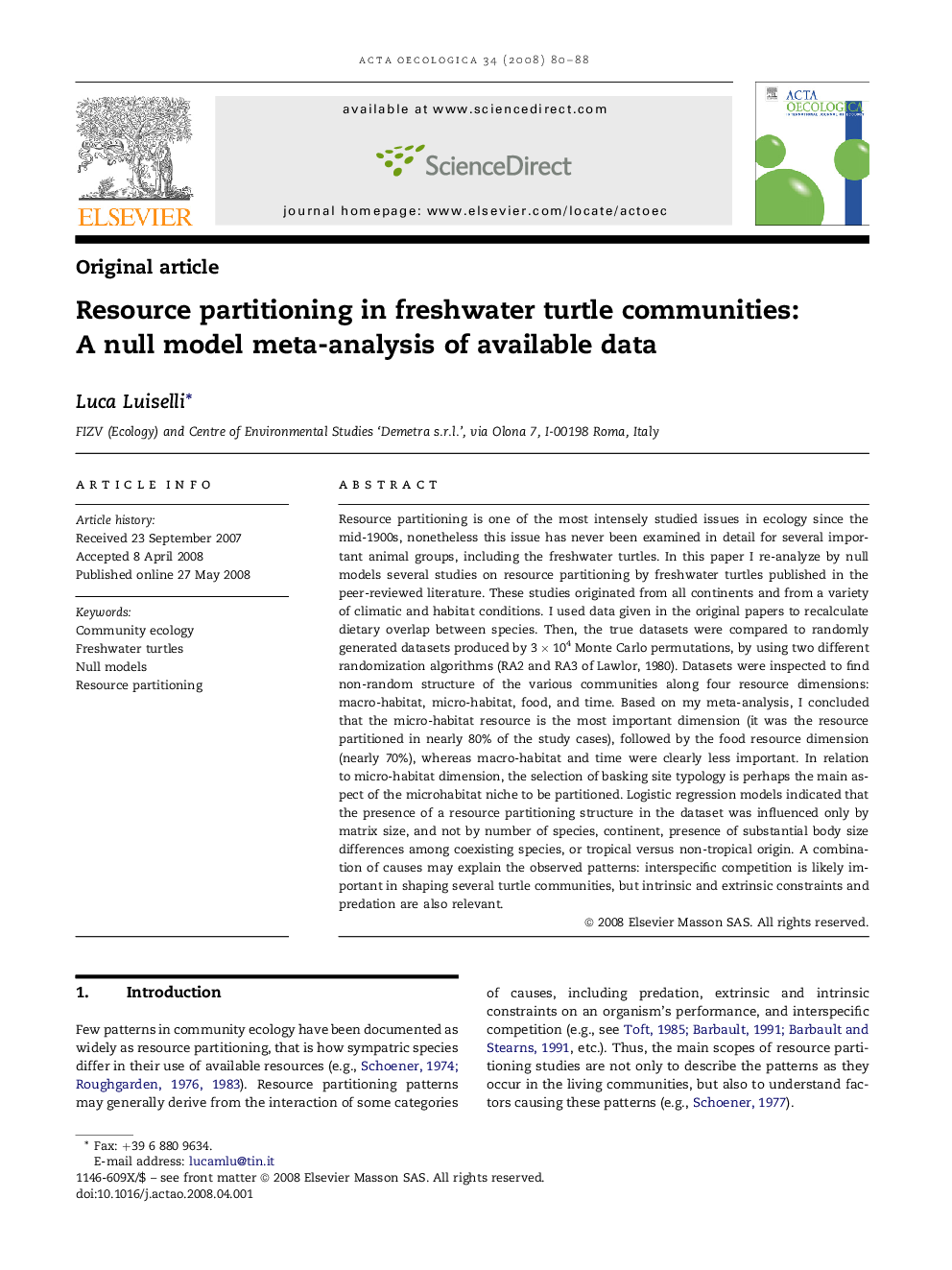| Article ID | Journal | Published Year | Pages | File Type |
|---|---|---|---|---|
| 4381575 | Acta Oecologica | 2008 | 9 Pages |
Abstract
Resource partitioning is one of the most intensely studied issues in ecology since the mid-1900s, nonetheless this issue has never been examined in detail for several important animal groups, including the freshwater turtles. In this paper I re-analyze by null models several studies on resource partitioning by freshwater turtles published in the peer-reviewed literature. These studies originated from all continents and from a variety of climatic and habitat conditions. I used data given in the original papers to recalculate dietary overlap between species. Then, the true datasets were compared to randomly generated datasets produced by 3Â ÃÂ 104 Monte Carlo permutations, by using two different randomization algorithms (RA2 and RA3 of Lawlor, 1980). Datasets were inspected to find non-random structure of the various communities along four resource dimensions: macro-habitat, micro-habitat, food, and time. Based on my meta-analysis, I concluded that the micro-habitat resource is the most important dimension (it was the resource partitioned in nearly 80% of the study cases), followed by the food resource dimension (nearly 70%), whereas macro-habitat and time were clearly less important. In relation to micro-habitat dimension, the selection of basking site typology is perhaps the main aspect of the microhabitat niche to be partitioned. Logistic regression models indicated that the presence of a resource partitioning structure in the dataset was influenced only by matrix size, and not by number of species, continent, presence of substantial body size differences among coexisting species, or tropical versus non-tropical origin. A combination of causes may explain the observed patterns: interspecific competition is likely important in shaping several turtle communities, but intrinsic and extrinsic constraints and predation are also relevant.
Related Topics
Life Sciences
Agricultural and Biological Sciences
Ecology, Evolution, Behavior and Systematics
Authors
Luca Luiselli,
